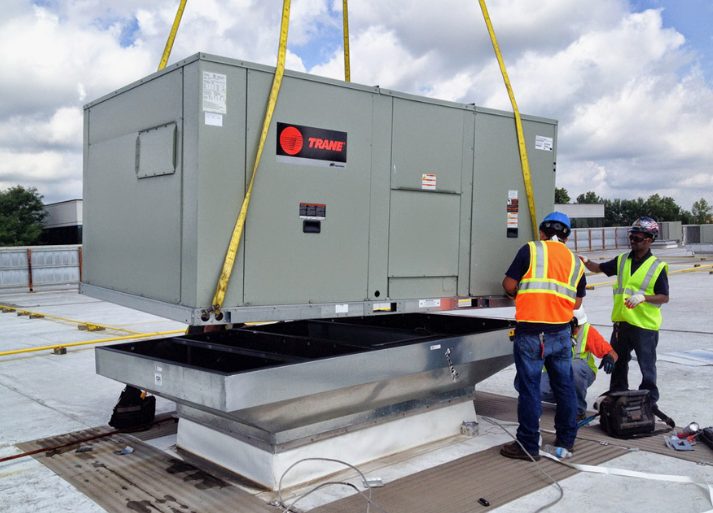A home generator is a great investment that will bring peace of mind, as you know you’ll have reliable electricity. With this investment, whether it is an unexpected storm, natural disaster, or even a failure in the grid, you can ensure that your main appliances and systems continue to work. We take a look at the advantages, the installation process, and factors to consider when having a home generator.
Why Install a Home Generator?
Uninterrupted Power Supply:
Power outages can affect your daily life in terms of heating and cooling, lighting, refrigeration, and even medical equipment. A generator keeps these systems up and running, providing safety and convenience.
Increase in Value of the House:
A generator will increase the resale value of your property. Potential buyers are often impressed by the added reliability and preparedness that a generator provides, making your house more attractive in the real estate market.
Protection from Damage:
During extended power outages, the threat of spoiled food, frozen pipes, or sump pump failure is ever-present. A generator eliminates these risks through continued power supply.
Available Options:
Portable units that meet small-scale needs, to whole-home generators that supply all appliances, there’s a solution for every budget and requirement.
The Generator Installation Process
Assessment and Planning:
A qualified technician will measure your home’s energy needs, taking into consideration the size of your lot, critical systems to be powered, and budget. All this helps determine the proper generator size and type.
Choosing a Generator:
Generators come in many capacities and fuel types: natural gas, propane, and diesel. The selection will be determined by availability, environmental sensitivity, and your needs.
Preparing the Site:
The location chosen must be level, well ventilated, and compliant with the local building codes. The professionals will look for a place that ensures minimum noise pollution and safety, yet offers easy access for servicing.
Wiring:
Wiring is taken care of by licensed electricians. They ensure that your generator is connected with your house’s electrical system. The transfer switch they install ensures that during the power outage, the generator comes on automatically, and once electricity is available in the grid, it shifts back to it.
Testing and Training:
Once installed, the generator is thoroughly tested to ensure it operates correctly. Technicians will also guide you on basic operation, troubleshooting, and maintenance.
Key Considerations Before Installation
Local Regulations and Permits:
Check with your local authorities for necessary permits and compliance with zoning and noise regulations. Professionals can often assist with the paperwork and approval process.
Budget Planning:
Generators installation costs vary widely. While portable generators may cost less upfront, whole-home systems offer superior convenience and reliability but require a higher initial investment.
Fuel Supply and Storage:
Consider the availability and storage requirements of your chosen fuel type. Propane and diesel generators need adequate on-site storage, while natural gas units connect directly to your utility line.
Maintenance Requirements:
Generators require periodic maintenance, including oil changes, filter replacements, and inspections. Factor in these ongoing costs to ensure long-term reliability.
Benefits of Professional Installation
Safety:
Incorrect installation poses risks like carbon monoxide poisoning, electrical hazards, or fire. Certified professionals ensure all work complies with safety standards.
Efficiency:
With expert installation, your generator will function at optimal capacity, minimizing energy waste and prolonging its lifespan.
Warranty Protection:
For most manufacturers, warranties are only valid if installed professionally. Hiring a qualified group of installers ensures your investment is protected.
Thorough Support:
Professionals will often provide continued support, from annual maintenance to emergency repairs, which gives you added confidence in your system.
A Trustworthy Partner for Generator Installation
The right service provider will ensure a smooth installation experience. You should look for experienced, certified professionals who have satisfied customers. They will guide you through the intricate installation process, from choosing the proper equipment to ensuring compliance with local regulations.
With a backup generator, you’re not just preparing for the unexpected—you’re investing in safety, convenience, and peace of mind. Take the first step today by consulting with a trusted installation expert. The next time the power goes out, you’ll rest easy knowing your home is equipped to handle it.
Conclusion
Home generator investment means you are doing proactive things that ensure safety, convenience, and reliability when the power goes out. Maintaining comfort and other essential systems, a generator can raise the value of your home as well as offer peace of mind in uncertain times. Professional installation ensures the process is seamless, compliant, and optimized for your needs. Don’t wait for the next outage—consult with a trusted generator installation expert today and enjoy uninterrupted power whenever you need it.
FAQs
1. How much does a home generator cost to install?
The cost varies based on the generator size, type, and installation requirements. Portable units start at a few hundred dollars, while whole-home systems, including installation, can range from $5,000 to $15,000 or more.
2. What is the maintenance schedule for a home generator?
Routine maintenance involves oil changes, filter replacements, and inspections. Most generators require servicing every 6–12 months or after a specific number of operating hours.
3. Can I install a home generator myself?
DIY installation is not recommended. Professional installation ensures safety, compliance with local regulations, and warranty protection.
